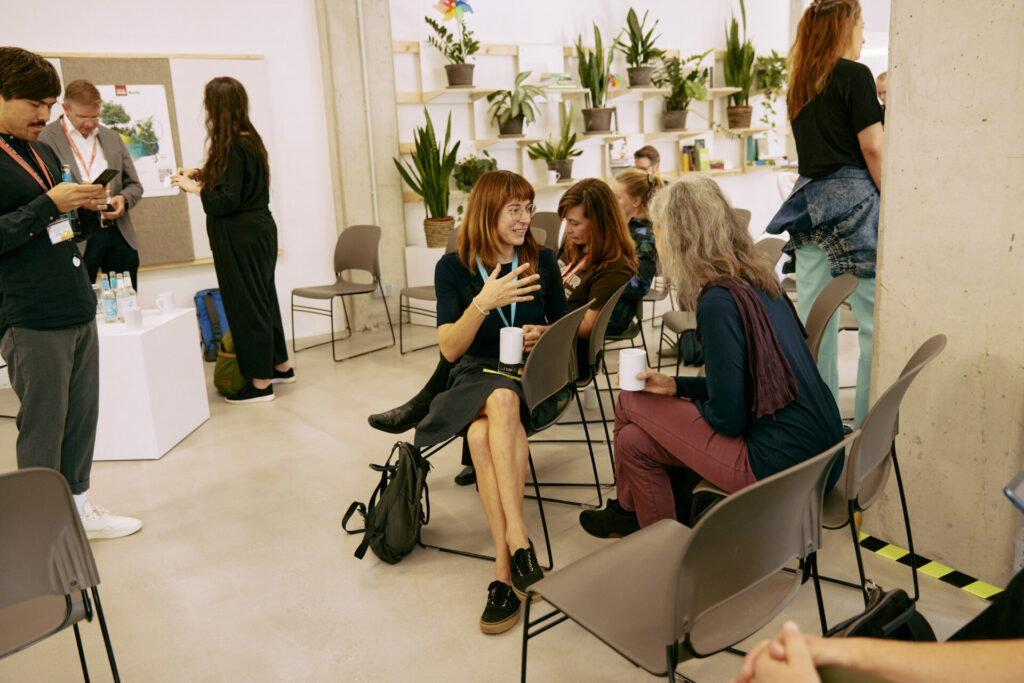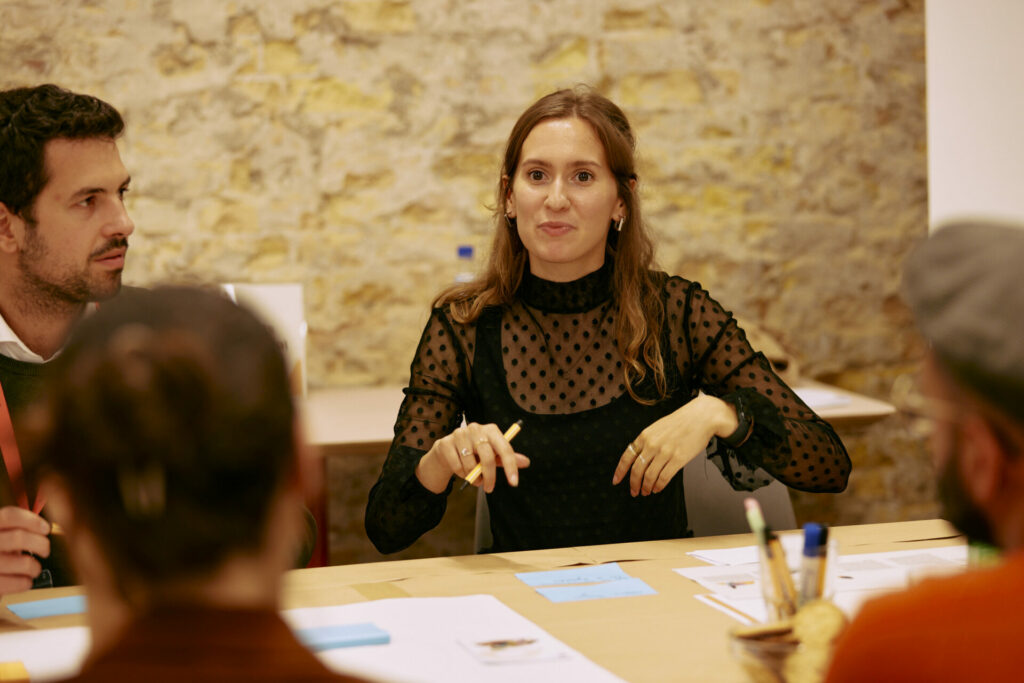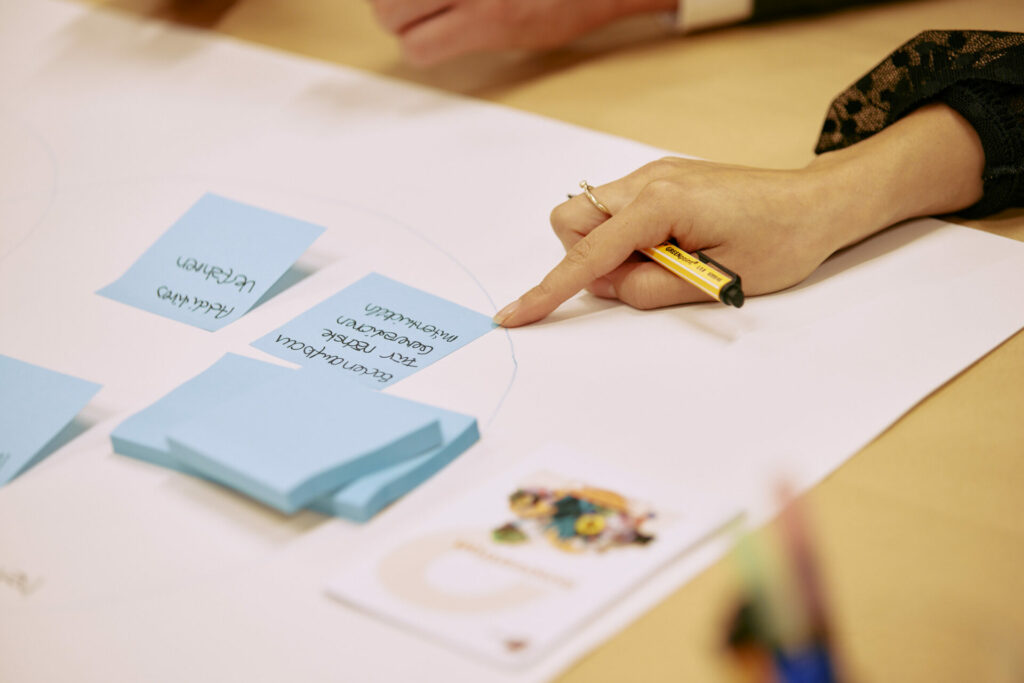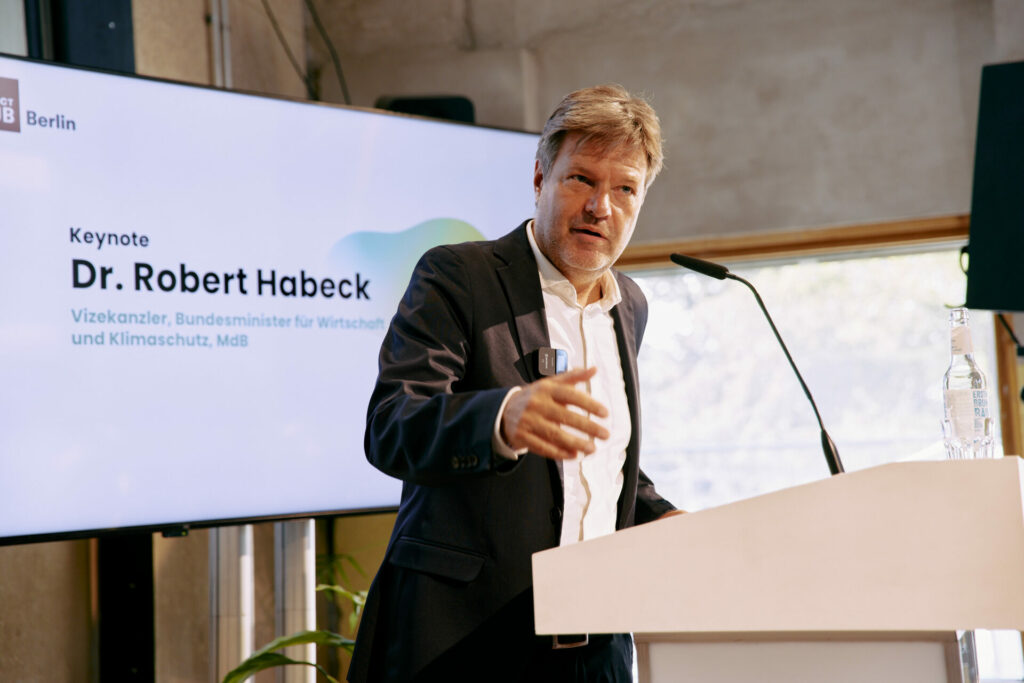
Impact Entrepreneurship Forum: Our Highlights
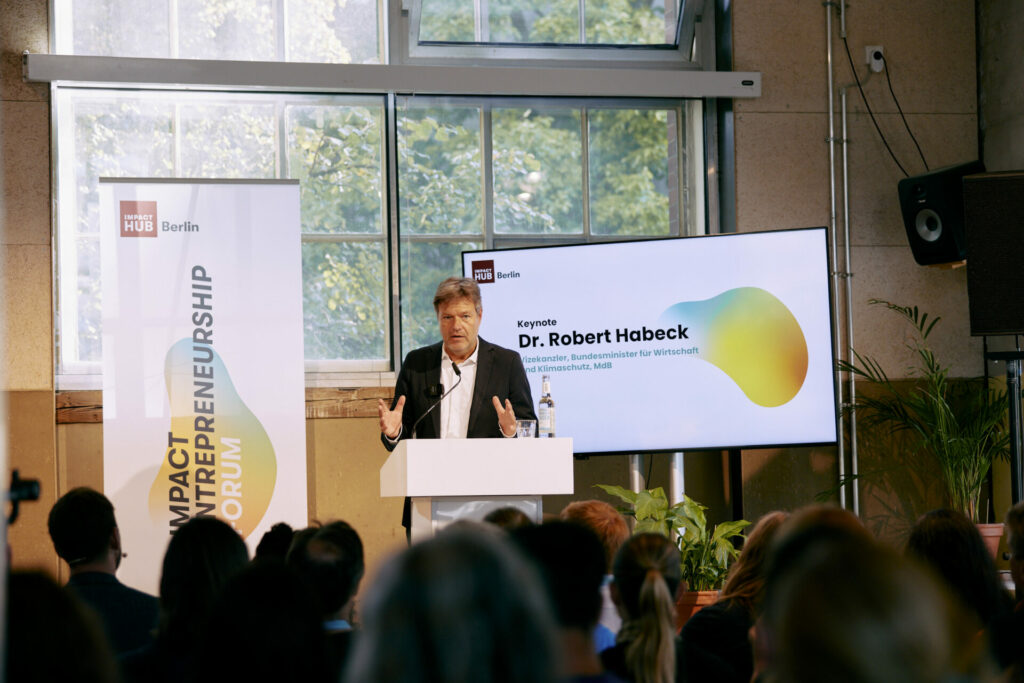
Now that impact entrepreneurship is no longer a niche topic, but instead recognised as a central economic force for innovation and sustainability by Germany’s highest politicians, it’s time to take it to the next level and begin a period of new seriousness. As a result, our founder Leon Reiner opened the first Impact Entrepreneurship Forum – a day guided by goal-oriented attitudes and a solutions mindset.
What unites the impact sector right now is the wish that the important words of the newly published first German National Strategy for Social Innovation and Public Benefit Enterprises is followed by the right actions and Robert Habeck, Vice Chancellor and Federal Minister for Economic Affairs and Climate Protection who spoke on our stage in the afternoon is set on that goal. Now that the strategy has been finalised and discussed in the parliament, it is time to show that the government does not only write strategies but is also ready to deliver their measures.
During the first Impact Entrepreneurship Forum, Robert Habeck declared his support for impact ventures and entrepreneurs that combine profitability with the common good. He praised impact entrepreneurs for daring to try and start businesses tackling big challenges, even if and despite the fact that they do not know if they will surely succeed. Finally, he praised the impact sector for using economical means to solve the biggest problems of our time and the most pressing societal issues, which, in his words, is simply “an awesome combination.”
Robert Habeck wished for more willingness to take risks in politics and administration, but also in business, and more optimism and trust in the outcome. He thanked the impact community for this fearlessness and recognised impact entrepreneurs as much needed role-models.
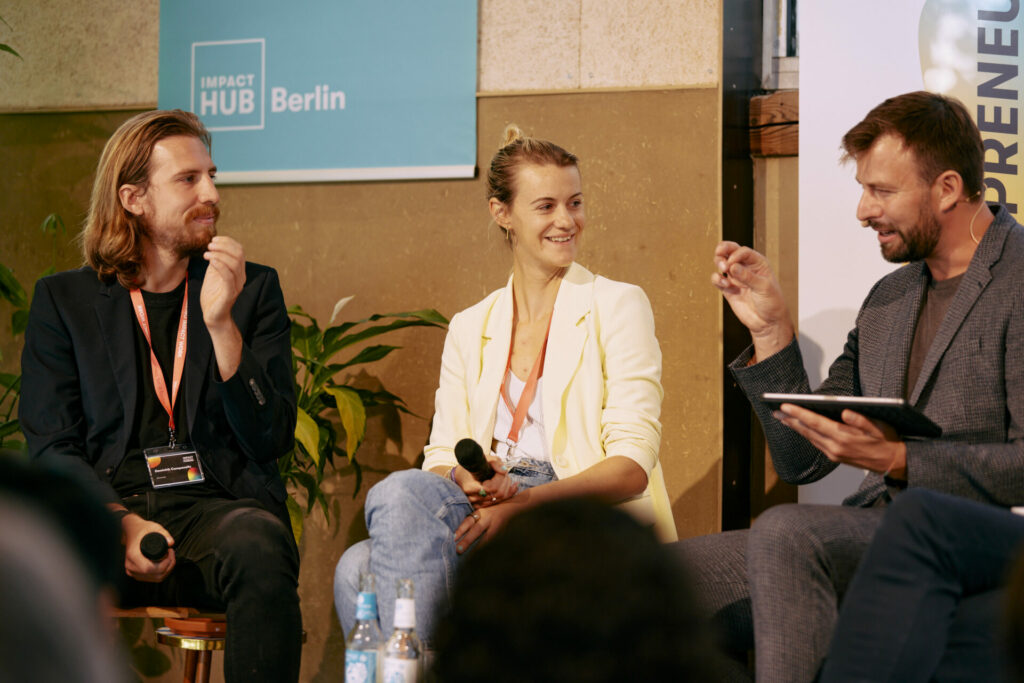
The national strategy as a milestone of impact entrepreneurship was the focus of the Breakfast Chat with Zarah Bruhn, Commissioner for Social Innovation at the BMBF. Zarah who was significantly involved in its development, and as a successful social entrepreneur and founder of socialbee, knows exactly what the hurdles and challenges of impact entrepreneurs are. The strategy emerged from the successful cooperation of two ministries, and in this sense alone is a prime example of Impact Hub Berlin’s core value: collaboration. Right at the beginning of the conversation, Zarah shared her vision for impact entrepreneurship once the strategy has been successfully implemented.
For Zarah Bruhn, impact entrepreneurship must merge with the traditional economy. Innovative funding is a decisive factor in this area, and Zarah guided our attention to the concept of impact-linked finance. Boiled down, it means that the greater the impact, the cheaper, simpler and larger the financing should be.
For this to work: “We must find new ways to better articulate and measure impact.” She said. There is still a lot to do in this area, and many actors need to work together and dare to experiment in new ways that prove impact, which is why the challenges of impact measurement remained central during many sessions of our event.
Zarah set the groundwork for the rest of the day and she shared her own personal wish: “With so many social and societal problems, I wish that we mostly found companies working on solving them.”
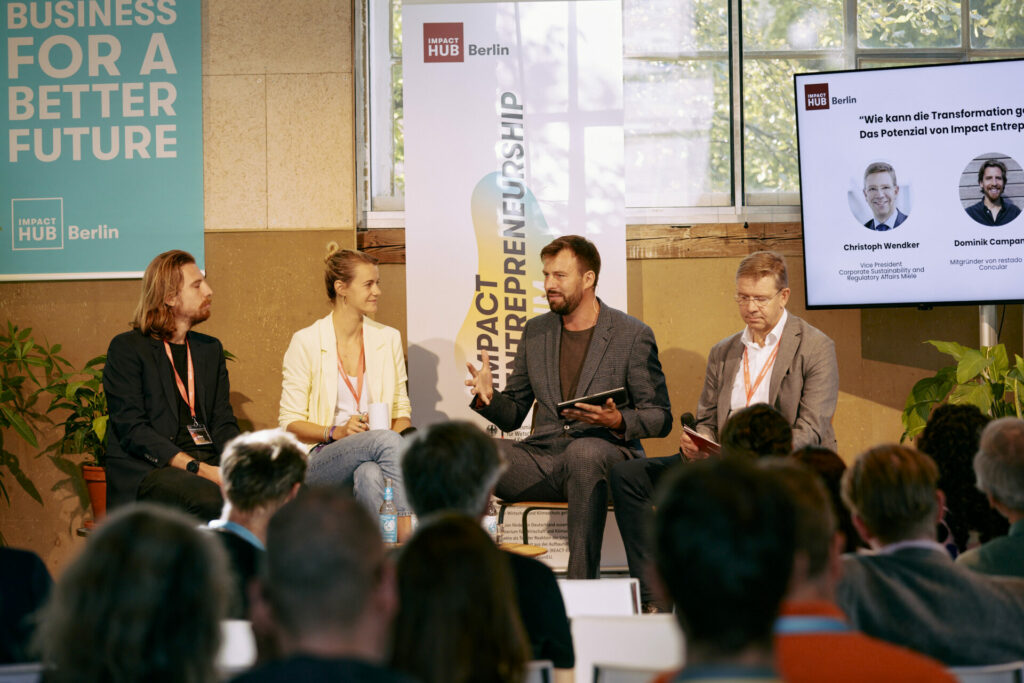
PANEL DISCUSSION: "HOW CAN TRANSFORMATION SUCCEED? THE POTENTIAL OF IMPACT ENTREPRENEURSHIP AS A DRIVER OF SOCIAL CHANGE "
We invited Zarah Bruhn to stay on stage for the following panel discussion, where she was joined by Christoph Wendker, Vice President Corporate Sustainability and Regulatory Affairs at Miele and Dominik Campanella, founder of Concular. Leon moderated the conversation.
Our speakers brought together their different experiences as startup founders, social entrepreneurs and ministry employees, as well as representatives of an established, traditional German manufacturer. Despite their differences, their perspectives did not clash, but complemented each other and demonstrated how enriching cross-sector and cross-industry exchange can be. The question of successful strategic partnerships and collaboration dominated the conversation, and above all how they can succeed between startups and large companies.
“If their goals are similar enough then startups can show big companies how it’s done,” said Christoph Wendker, who added that corporate companies should work together even more with startups and often interact to sound out common goals and challenges — in other words, play ping-pong with each other again and again. It takes a lot of collaboration between stakeholders to make change happen. In large companies, that takes time.
This issue can get in the way of startup cooperation. “There are also risks for startups that cooperate with corporations, because we think in completely different time frames,” added Dominik Campanella. “Startups need commitment and don’t usually have time to talk about something for months.” Timing seems to be crucial. Fittingly, Christoph Wendker regrets not having met Dominik Campanella earlier. We are happy they were able to connect at the Impact Entrepreneurship Forum and look forward to any new connections the future will bring.
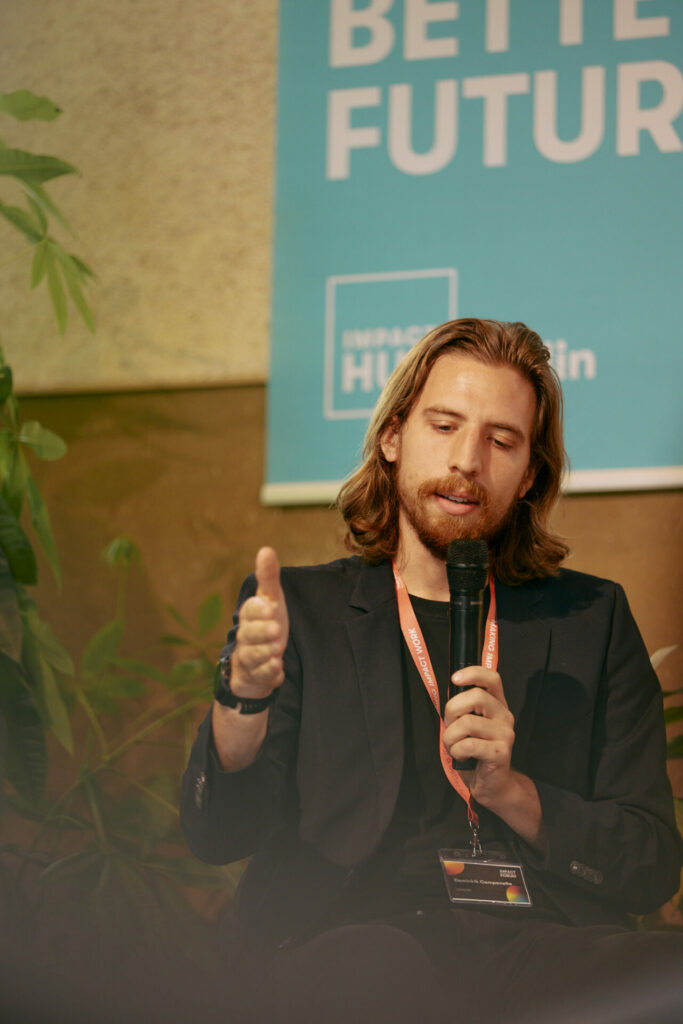
Domink's startup Concular is a prime example of how collaboration between startups and established companies, even in conservative industries, can be successful.
On the panel, Dominik shared his experiences as a successful impact entrepreneur and gave personal insights into the journey of his young startup. Its goal is to make the construction industry (one of the world’s biggest polluters) more sustainable and move it towards the circular economy. "Complaining over truffle pasta’ that things are not going well" is something he sees happening all too often. At the same time, he recognises that when things are working well for a long time, there is little motivation to make big changes.
How does Concular manage to get big businesses in this "extremely conservative industry" with their $100 billion Euro projects, on board and to be able to review their entire processes and make construction materials and workflows more sustainable and circular?
"You have to keep getting out of your comfort zone, keep pitching, over and over again and during the process you’ll keep hearing that it's not going to work a hundred times, but eventually someone says OK. This is how you build your first case.” Despite the hurdles, it is fulfilling work, confirms Dominik.
Zarah concluded the panel by appealing to all the impact entrepreneurs who hope to be seen as serious players; “Be bold and have the courage to focus on the impact you can measure and prove. Even if you know that your real impact goes far beyond that.” This is because most of the attention and capital goes to measurable impact and where tangible savings can be made. She mentions again about impact-linked finance and how to be prepared for it. “No finance without measurable impact.” Once that is the case, we need to be braver in hanging a Euro sign onto our own impact.
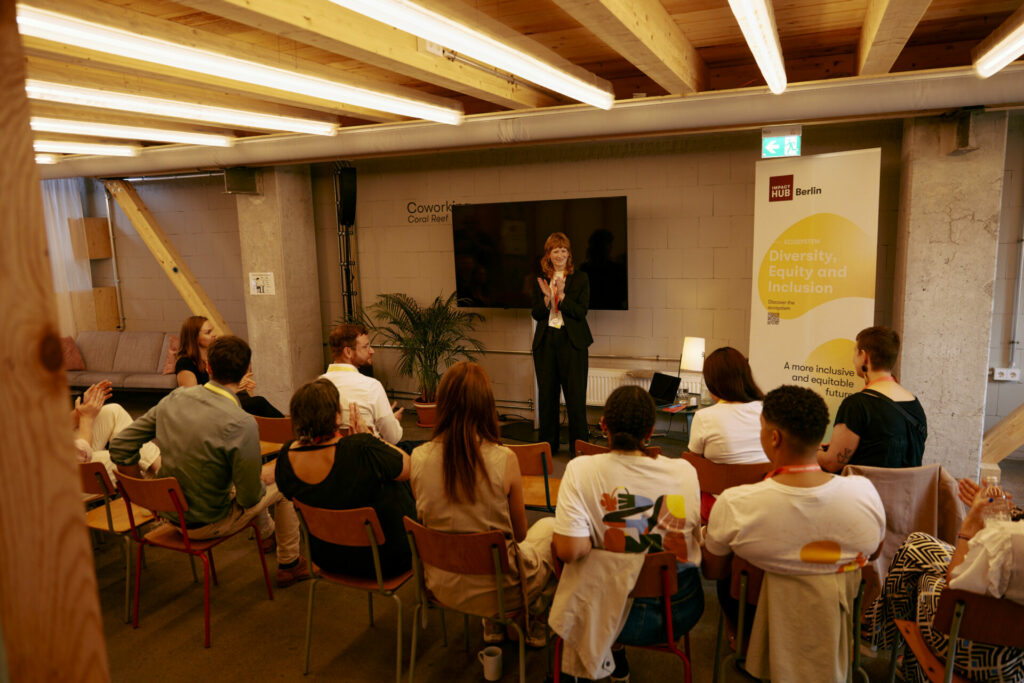
IMPACT TRACKS: CIRCULAR ECONOMY, SUSTAINABLE FOOD, AND DIVERSITY, EQUITY AND INCLUSION
After a joint morning at our main stage, our guests were then divided into three impact tracks. In different, we addressed the need for the significance and measurability of impact. The tracks were a good way to bridge the gap between broader visions that guide us and the daily work of impact startups and their creators. It was about translating the big challenges into smaller issues and ecosystem-specific solutions, as well as about practical exchanges with many actors.
Our impact ecosystems are thematic networks and problem-solving units. We gather actors to work together to solve specific societal challenges, ensuring a diverse mix of stakeholders, experiences and perspectives.
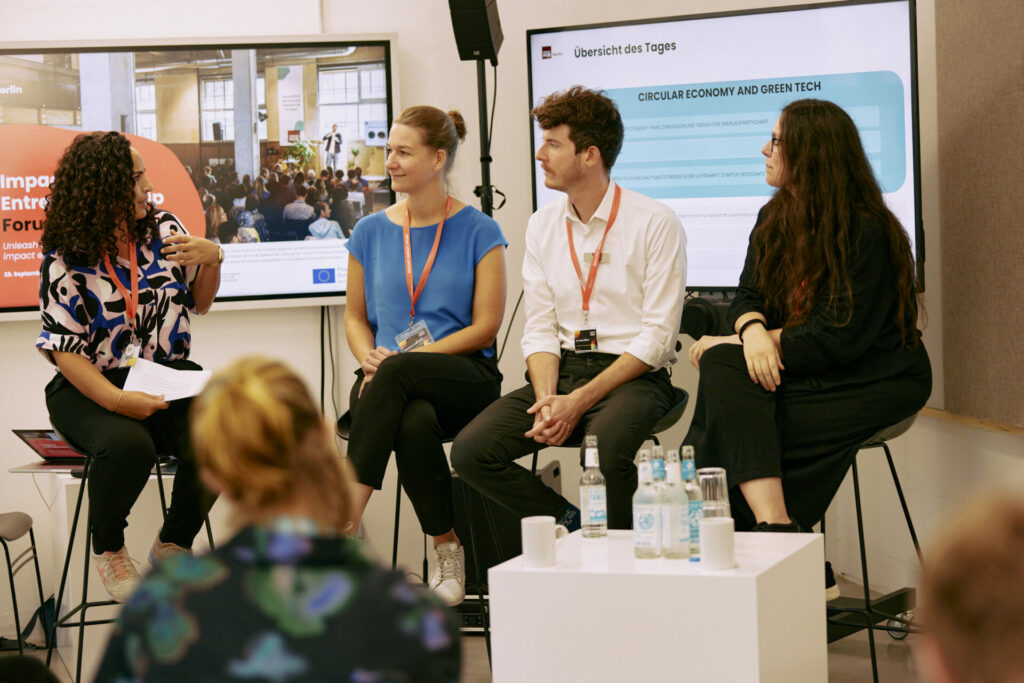
THE CIRCULAR ECONOMY TRACK
The Circular Economy Track started with a stakeholder discussion with Marianne Kuhlmann, co-founder of Circularity, Jonas Hüther, Circularity & Longevity Manager at Miele and Isabel Gomez, board member of the Cradle to Cradle NGO. The moderator was Janna Schlender, Head of Strategic Partnerships at Impact Hub Berlin.
In their talk, our experts addressed topics that had already played the key role on the main stage during the morning. With a focus on the Circular Economy and the Cradle to Cradle principle, they spoke about the relevance of impact measurement, regulation and standards, as well as the pull between competition and partnerships. The significance of cross-sector partnerships and an exchange between diverse stakeholders was once again emphasised. This is particularly true within large companies, as circularity begins with design is implemented in the technical departments. It is not enough for just the management to set circular ambitions, all employees must be involved and convinced. Outside companies, many different actors need to participate in the success of a circular economy: suppliers, financing partners, consumers, etc. The transformation can’t succeed in silos, but only through collaboration and by continuously addressing the gaps in mutual understanding.
In order to ensure that the transition towards circularity is not simply a matter of goodwill, but of funds flowing to the right places, our speakers emphasised the importance of standards and reliable impact measurement. Only if circularity can be evaluated and priced will more companies get involved. Then consumers can develop an understanding of what they are paying, initially and in the long term, when deciding for circular products and services.
We were also able to touch on the strategic relevance of circularity from a business development and political lens, and recognise the huge opportunity and potential for the market that it brings. This is both in the sense of new competition; which exerts massive innovation pressure on established companies in the form of startups; and as an opportunity to develop new partnerships, business models and unexpected forms of cooperation. We need to rethink and reinvent competition and replace it with ecosystem thinking, everyone agreed.
The Circular Economy Track ended with a focus on green technologies and an insight into the work of the Lufthansa Innovation Hub and their strategies for a more sustainable travel industry, which Kolin Schunck and Jana Jacobs presented.
The presentation of the Lufthansa Innovation Hub was complemented by contributions from two impact startups of our Green Tech ecosystem, whose solutions help to better and challenge the impact of corporations and the industry. We would like to thank Crowd Impact and Squake for their engaging presentations.
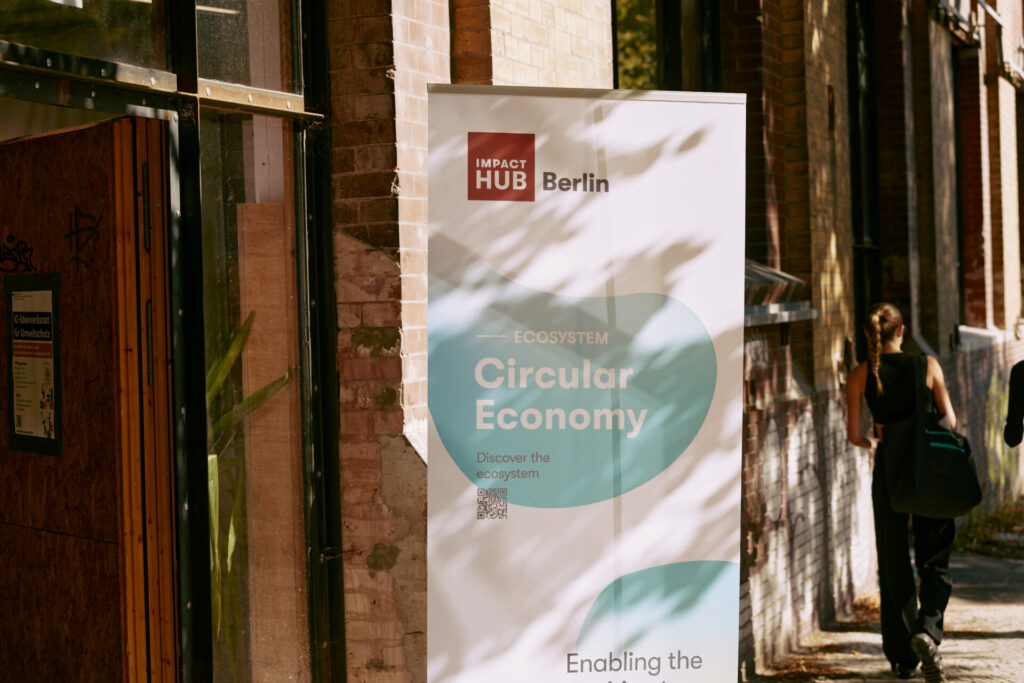
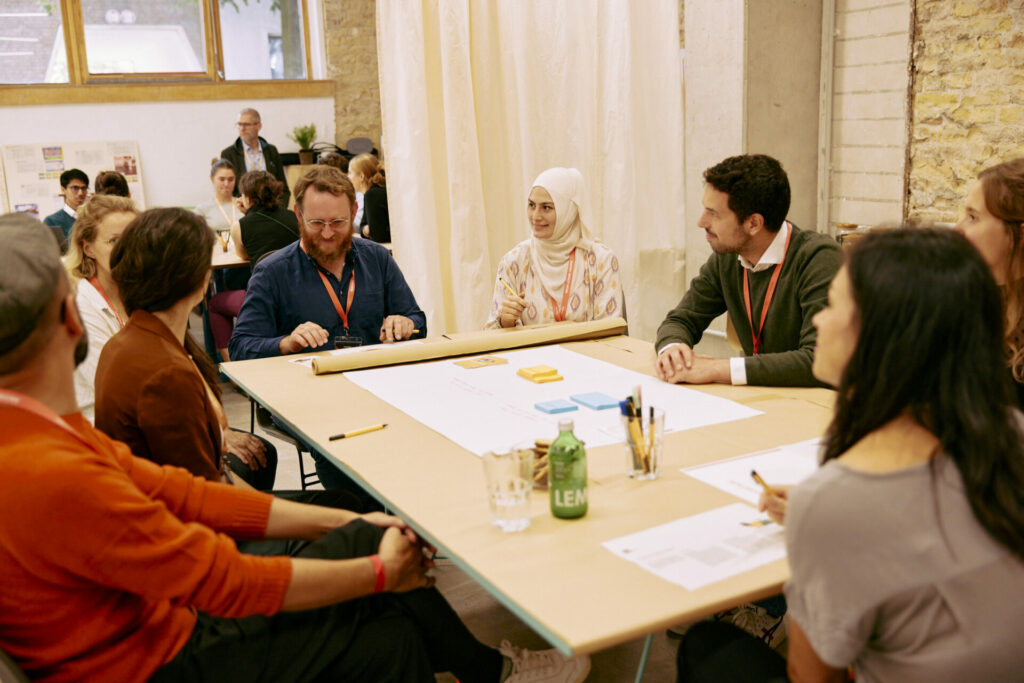
THE SUSTAINABLE FOOD TRACK
During the Sustainable Food Track, we ventured an optimistic look into the future of sustainable food systems, with our current Sustainable Food Trend Report providing the content framework for an exchange with actors from the Sustainable Food ecosystem. In three parallel roundtables, we delved into the megatrends and future scenarios of sustainable food subsystems and highlighted how they can increase the resilience and regeneration of the agri-food sector, especially through collaboration and partnerships. The talks were moderated by innovators from our community. We would like to thank Nishit Agrawal, Co-Founder of SkoneLabs, Marie Populus, Member of the Board of SuperCoop Berlin eG, Felix Virmani, Country Manager Marktschwärmer Germany and Alexander Engelke, Team-Lead Innovation & Strategy, Rentenbank for their valuable input.
The overlap and interconnectedness of sustainable food with our other fields of impact such as the Circular Economy, Diversity, Equity and Inclusion and Green Tech; became very clear in the discussions. Cooperation and exchange are necessary between the different ecosystems of the impact economy.
In the afternoon, we deepened the exchange through an interactive immersion into sustainable innovations of our food systems and consumption, trying out solutions from agri-food impact entrepreneurs in our community. With OURZ, we explored the sustainability and value chains of supermarket products. We tried smoothies made from food scraps with Open Funk’s circular blender and tasted the difference of the shortened food journey, straight from farm to table, thanks to Food Together.
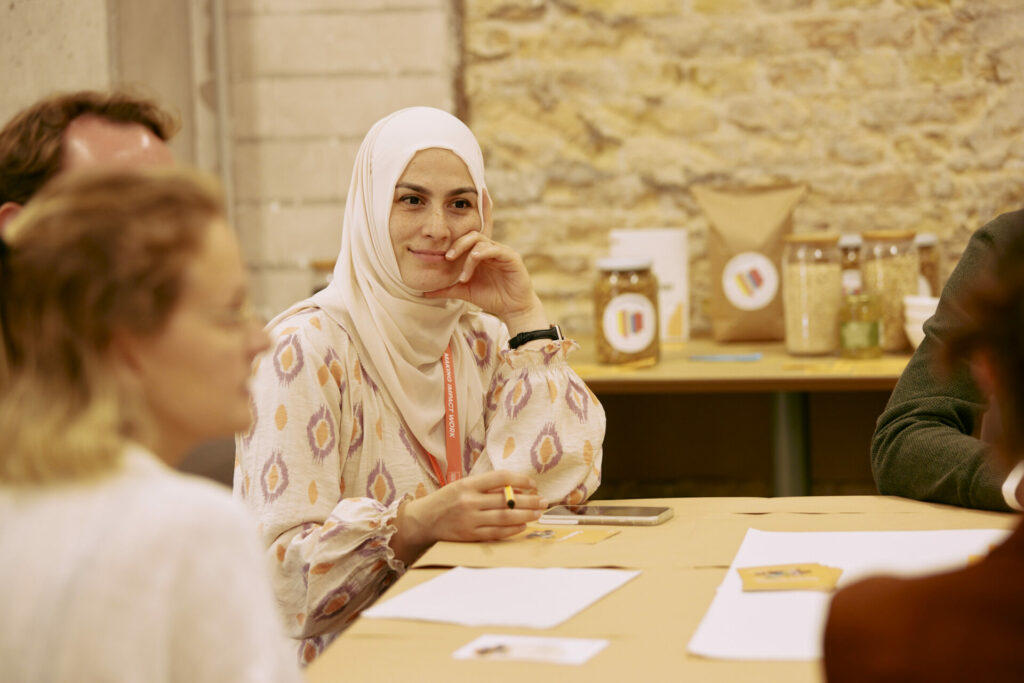
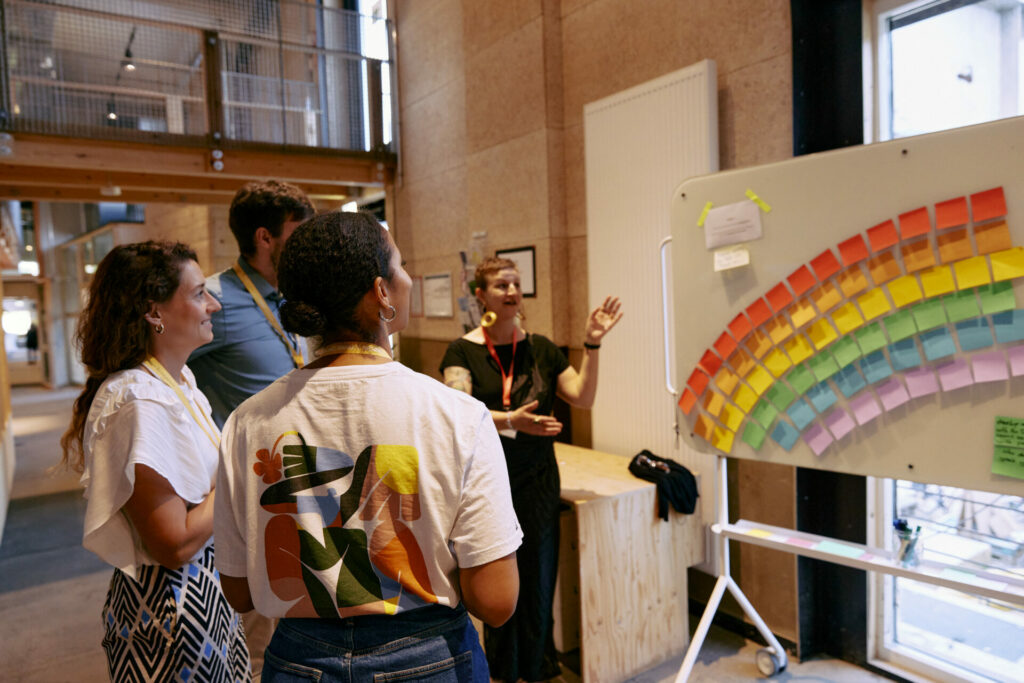
DIVERSITY, EQUITY AND INCLUSION (DEI)
In the first part of the Diversity, Equity and Inclusion (DEI) track, in small groups participants discussed their perspectives on the topics of empowerment, allyship and partnerships. Amongs other topics a wish emerged for a more inclusive and intersectional impact sector, and for more solidarity and visibility through collaboration with stakeholders from politics and business.
In the second part of the DEI track, we welcomed panellists Genefer Baxter (she/her), co-founder of Aula Future and part of Empower Now, Lukas Pajonczek (he/him), co-founder of Video to Voice and alumni of our Digital Imagination Challenge, Nora Mathelemuse (they/them), psychologist, data scientist, founder of all.txt and IHB member, and Anna Lena Schiller (she/her), Head of Tech at AlgorithmWatch.
In addition to the question of what opportunities and challenges technological solutions in the DEI space pose, the panellists reported on their own experiences as founders. They discussed the opportunities, challenges and dangers of algorithms and AI, especially in relation to hate speech, natural language processing and machine learning. Over the course of the panel, it became clear that AI and algorithms are never objective, but draw information from existing (mostly incomplete) and thus discriminatory data sets. To counteract this development, we need more diversity and intersectionality among those designing and implementing technical solutions.
Thanks to their sensitivity and perspective, dangers for marginalised groups and groups affected by discrimination can be recognised earlier, helping to protect democracy and the rule of law. Diversity and intersectionality are just as important in research and technology as they are in the startup scene and entrepreneurship community. When asked what gives them hope for the future, the audience agreed that the panellists’ work was a good and important start. We thank all participants of the DEI track for their openness and courage, but especially Gen, Lukas, Nora and Anna Lena for their time and insights.
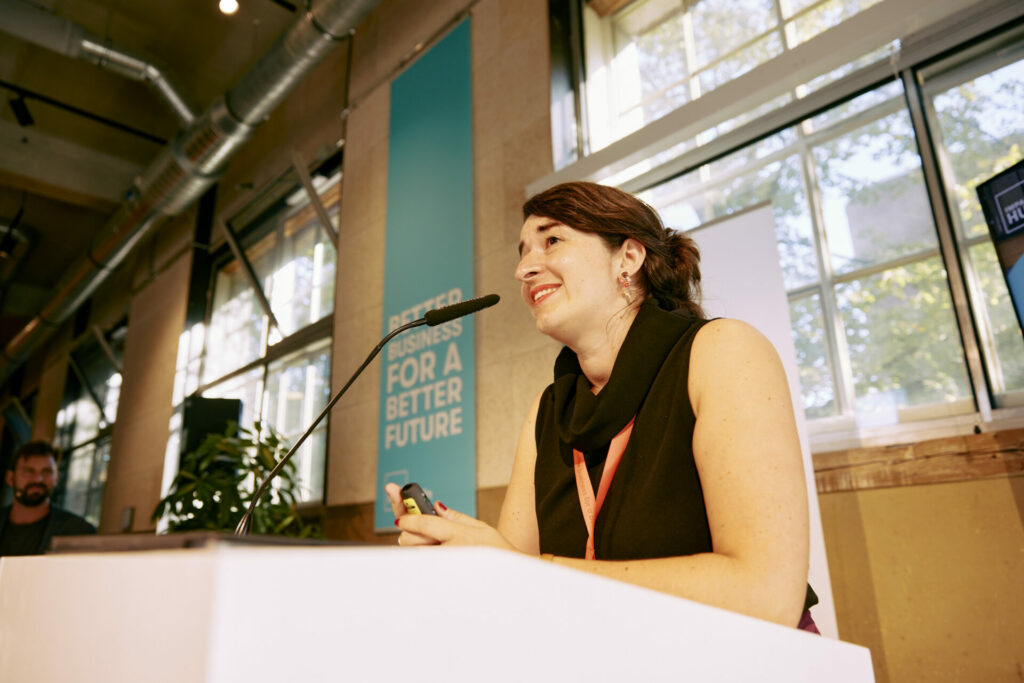
Closing Remarks
The final remarks from the day were given by Heloise Le Masne, Director of Operations at Impact Hub Berlin, who closed out the forum by inviting participants to briefly share their favourite moments and what they took away from our event. We would like to highlight the comment of Manuel Ehlers, Head of Sustainable Property at Triodos Bank, who noticed that in addition to his encouragement, Robert Habeck placed a great responsibility on the community, which boils down to the scalability of impact solutions. Challenge accepted!
An article like this can hardly do all the expertise and important learnings of the Impact Entrepreneurship Forum justice. We therefore look forward to future additions and a lively follow up discussion online.
Many thanks to all participants for their great contributions and positive feedback.
The Impact Entrepreneurship Forum by Impact Hub Berlin was funded by the Federal Ministry for Economic Affairs and Climate Action as part of the ConnACT with Impact programme.

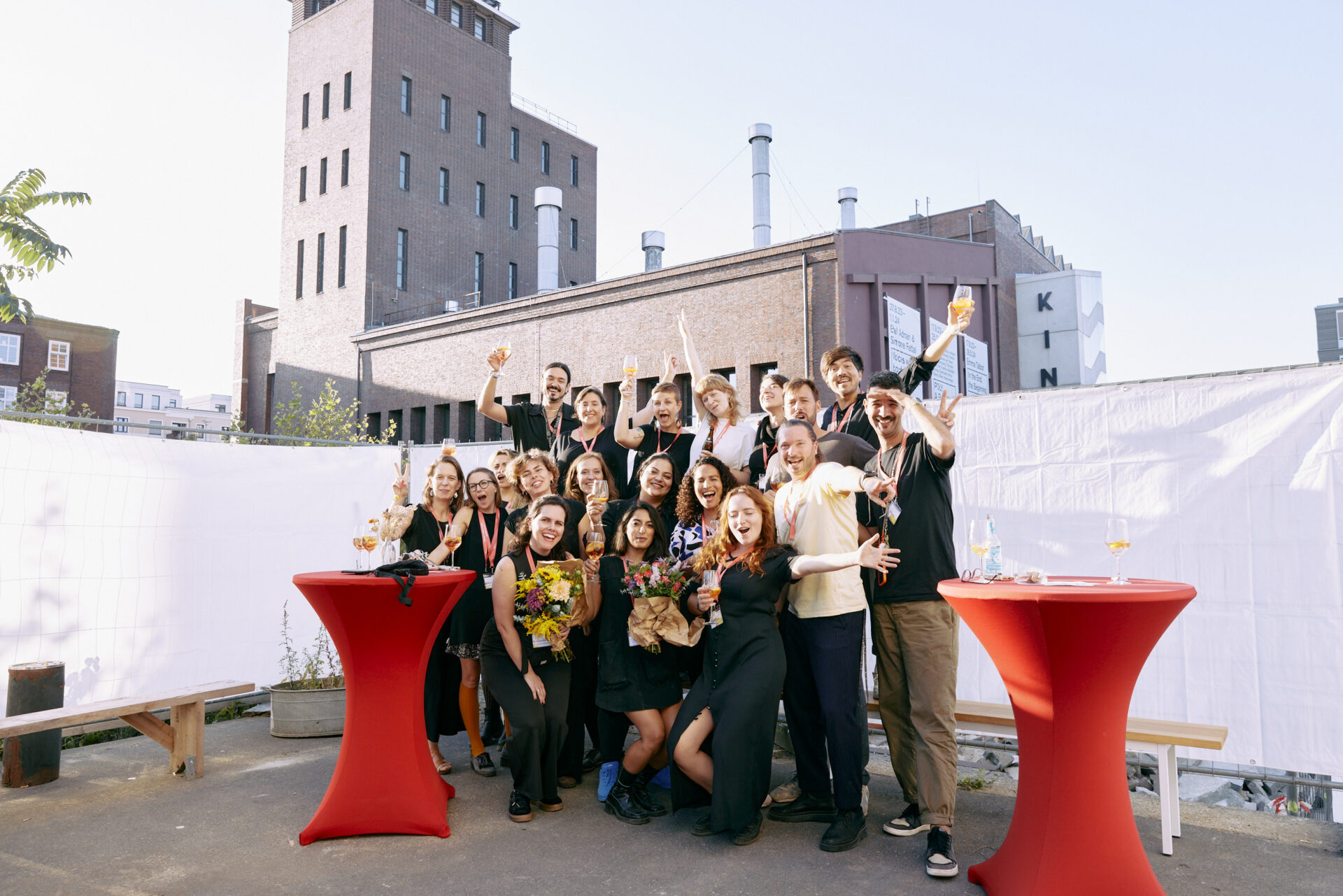
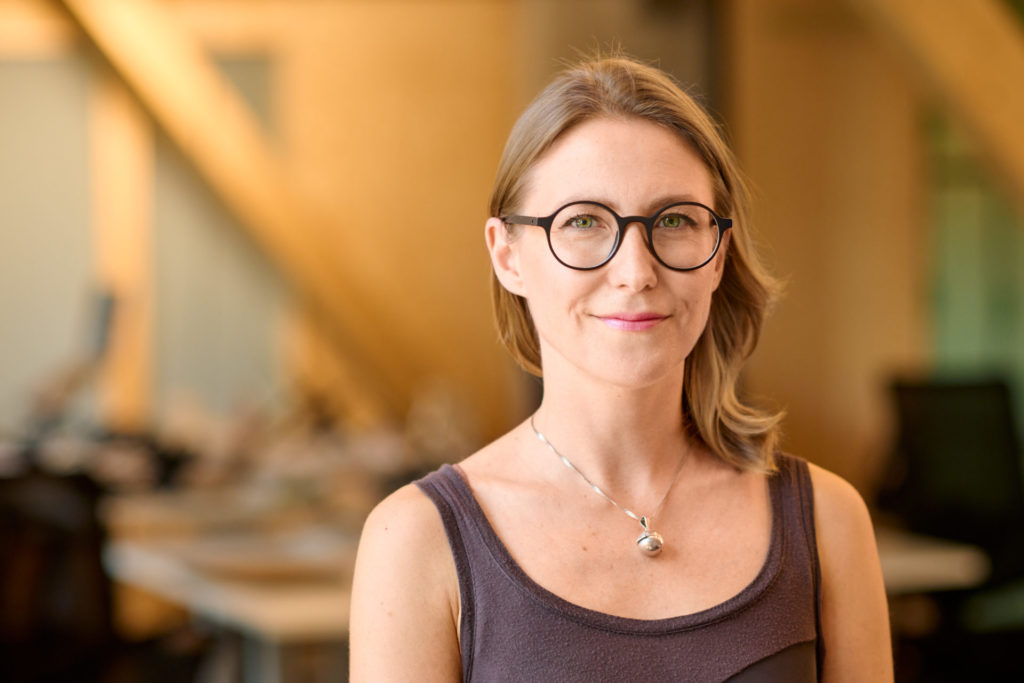
Content & PR Manager
